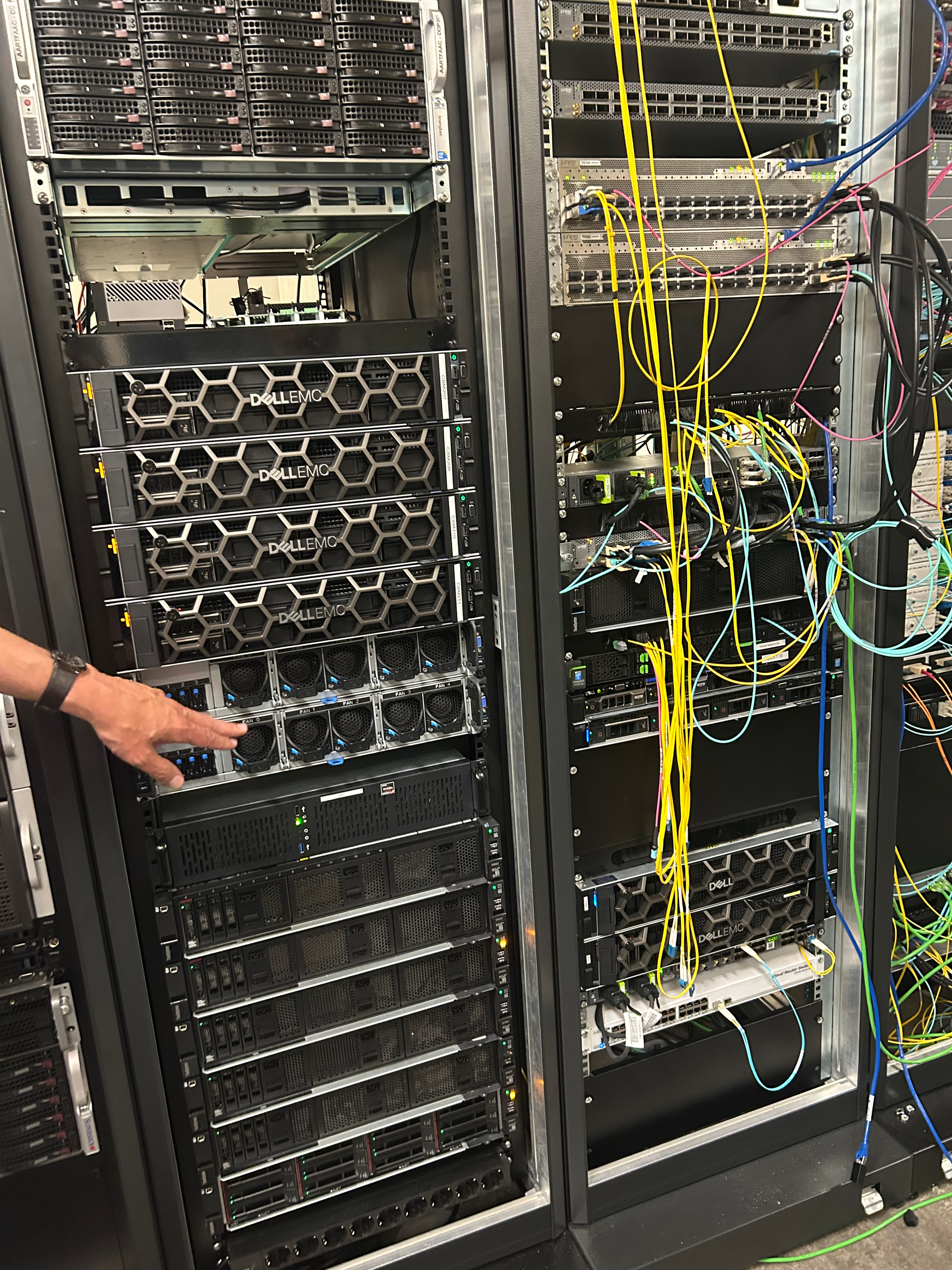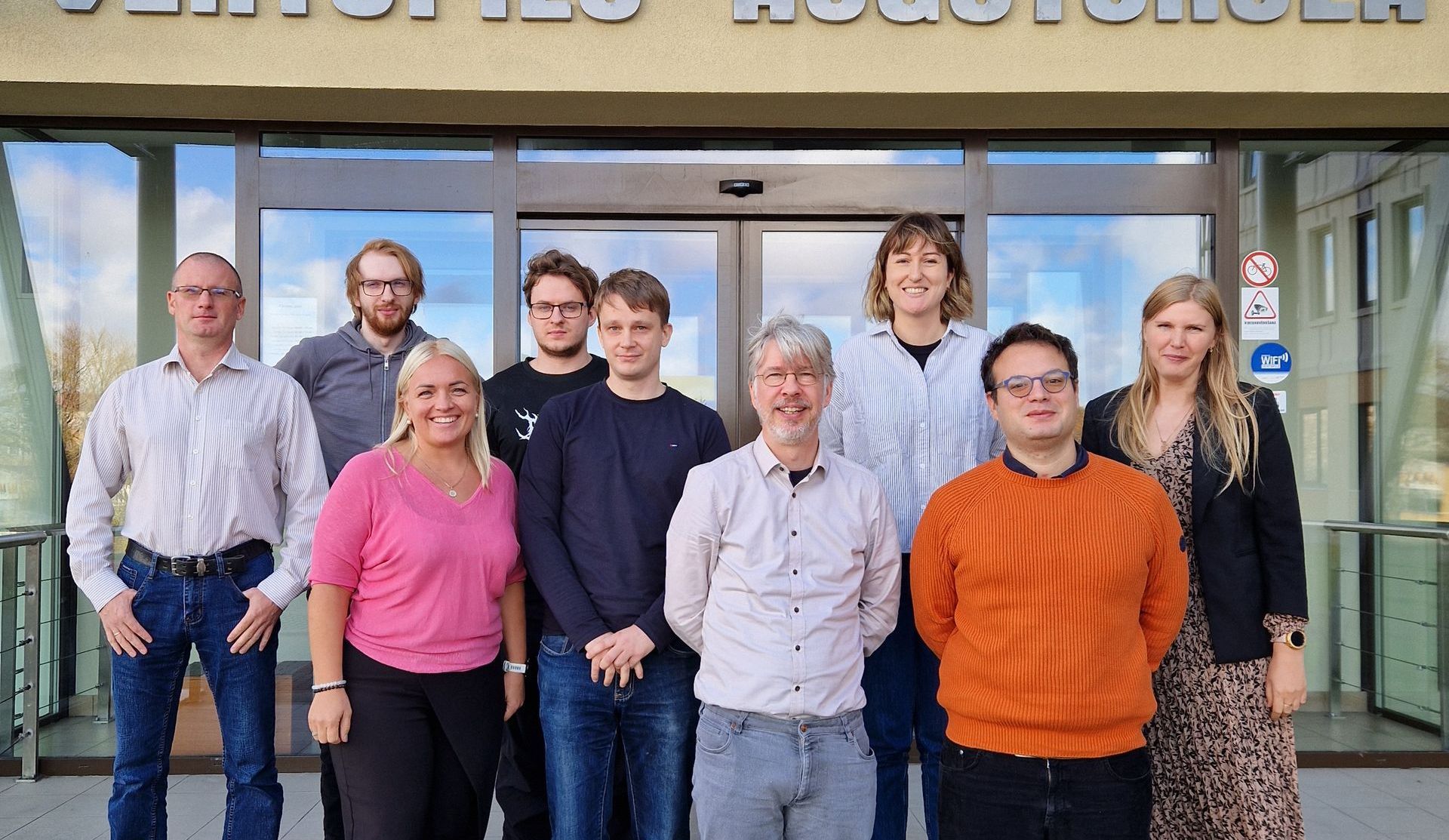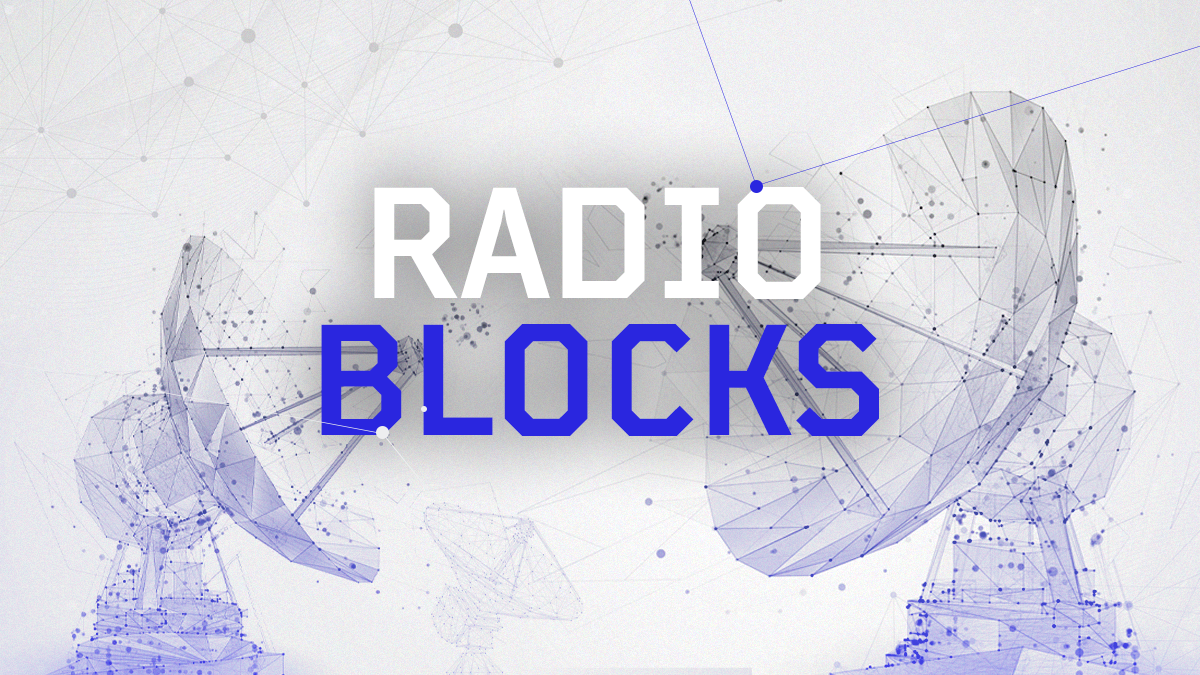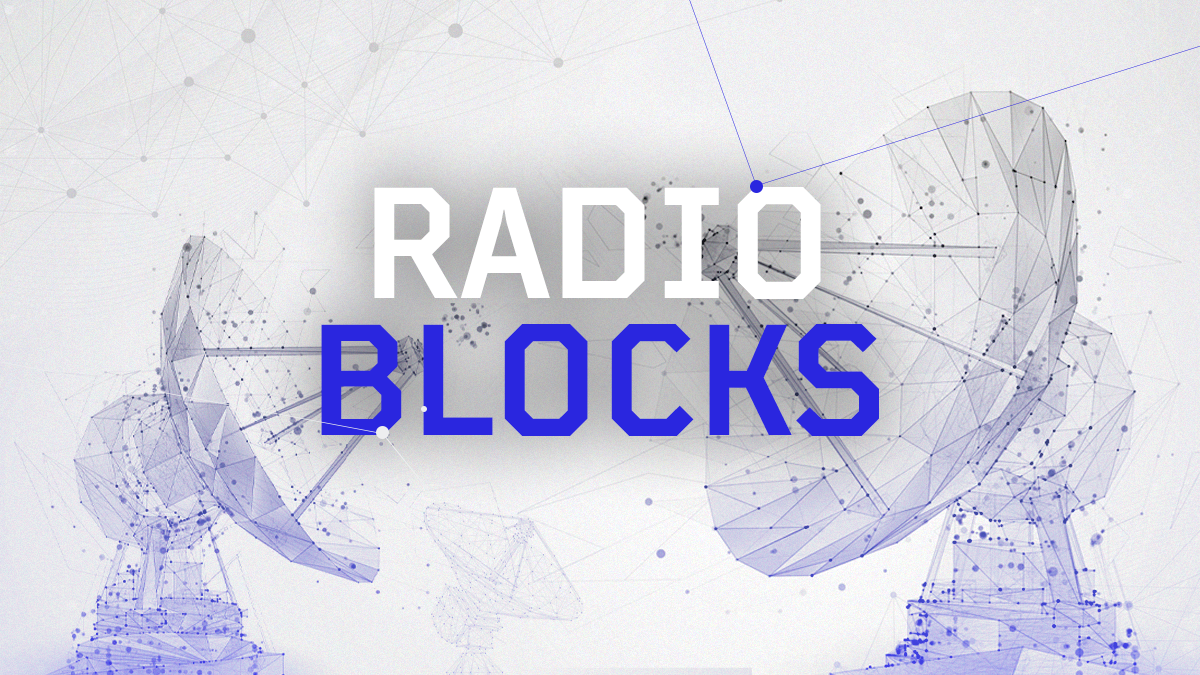By Rota Rulle
•
February 2, 2023
The RADIOBLOCKS project, coordinated by JIVE ERIC and including major European research infrastructures for radio astronomy, together with partners from industry and academia, have been granted 10 M€ by the European Commission to develop “common building blocks” for technological solutions beyond state-of-the-art, that will enable a broad range of new science and enhance European scientific competitiveness. The RADIOBLOCKS project will start on 1 March 2023. The RADIOBLOCKS project will take a holistic view of how radio telescopes arrays capture, process, synthesise and analyse cosmic signals and will develop components, technologies and software, applicable to a wide range of instruments, to enable the next major discoveries in radio astronomy. RADIOBLOCKS aims to achieve a maximal boost for the major world-leading research infrastructures in radio astronomy by developing common needed blocks: ● for the development of new correlators, which can efficiently exploit powerful new commercially available accelerator hardware (GPUs). This development will directly benefit the large radio arrays from meter to sub-mm wavelengths; ● in cutting-edge frontend technologies, addressing the generation and real-time handling of wide band and multi-band data, in particular for the creation of novel detectors and components, both RF and IF, as well as the design of backends, with built-in RFI mitigation; ● for multipixel (PAF/FPA) receivers, ranging from cm to submm wavelengths, suitable for large single dish facilities, with special relevance for future collaborations with pan-European and global RIs (e.g., SKA-VLBI). ● for data (post)processing, testing prototype workflows functionality and demonstrating usage of end-to-end simulation tools. "The project RADIOBLOCKS collects the experience and common interests of the radio astronomy community in Europe at large, including several other global parties and industry. For the first time, all will work together to develop the technologies that are necessary for the future evolution of their facilities. This is a paradigm shift, mostly facilitated by the European Commission's Horizon Europe programme", says Dr. Francisco Colomer, director of JIV-ERIC and coordinator of RADIOBLOCKS. The 4-year RADIOBLOCKS project - funded by the Horizon Europe Framework Programme - involves 33 major European research infrastructures for radio astronomy, together with partners from industry and academia from 9 European countries, Japan, Republic of Korea, South Africa, and the United Kingdom. The engagement with industry to co-develop advanced technologies will increase the partners’ technological levels and strengthen their market positions. The European research infrastructures (RI’s) involved in RADIOBLOCKS are the Joint Institute for VLBI ERIC (JIV-ERIC) and the European VLBI Network (EVN), the Multi Element Remotely Linked Interferometer Network (eMERLIN), the LOw Frequency ARray (LOFAR/ILT, in the process to become LOFAR ERIC), the Northern Extended Millimetre Array (NOEMA), the 100-metre Effelsberg Telescope, the Sardinia 64-m radio telescope, the Yebes 40-metre telescope, the IRAM 30-metre Telescope and also global facilities of European interest, such as the Square Kilometre Array Observatory (SKAO, an ESFRI landmark), the Atacama Large Millimetre Array (ALMA), the Global Millimetre VLBI Array (GMVA), and the Event Horizon Telescope project (EHT). “The RADIOBLOCKS project brings together world-leading academic research and industry experts from across Europe and beyond to co-develop and then exploit new technologies to maximise the science capabilities of current and future radio facilities,” says Prof. Rob Beswick, Head of Science Operations and User Support for e-MERLIN, the UK’s National Radio Astronomy Facility; Deputy Director of the UK SKA Regional Centre and RADIOBLOCKS lead at The University of Manchester. The project builds on the highly consolidated RadioNet consortium, which, since the year 2000, have been supported by the European Commission through their different Framework Programmes. RadioNet has successfully integrated a unique array of capabilities and contributed to the continued advances in radio astronomy, which are recognised as essential in answering key questions in astrophysics. The RADIOBLOCKS project is coordinated by JIV-ERIC, showing its central role as a coordinating research infrastructure bringing together the major research organisation in the radio astronomy field and its expertise coordinating several EC-funded projects in recent years such as the H2020 JUMPING JIVE. For JIVE ERIC and the EVN , RADIOBLOCKS will have a major impact for the development of a next generation Very Long Baseline Interferometry (VLBI) Correlator. The EVN technology roadmap for 2020-2030 highlighted the need for broad-band developments, extending the observing bandwidth by at least to 5 GHz, which also requires recording the data at a rate of up to 32 Gbps, an observing mode that will be fully compatible with the Square Kilometre Array (SKA-MID). Bringing in the SKA-MID, and several other telescopes is the other way to increase the sensitivity of VLBI observations performed by the EVN. This is particularly important for narrow-band phenomena - like Fast Radio Bursts (FRBs) - where the only way of improving the sensitivity and imaging capabilities is increasing the collecting area (i.e., the number of telescopes, distributed evenly on various angular scales). To be able to process these broad-band data for large number of telescopes (>30), a next generation VLBI correlator, including specific modes optimised for processing large fields of view, short transients (microseconds time scale), and high spectral resolution modes, is necessary. During the RADIOBLOCKS project, the VIRAC team will contribute to the development of a software that will be used for data processing in several VLBI networks (EVN (European VLBI Network), ILT (International LOFAR Telescope), ALMA (Atacama Large Millimeter Array), SKA (Square Kilometre Array), EHT (Event Horizon Telescope)) and will be useful for the whole radio astronomy community. It should be underlined that during the project, the data processing algorithms previously developed by the VIRAC team will be improved and applied to the observational data of the EVN and ILT networks. These algorithms are based on the KLT (Karhunen-Loève transform) and SSA (Singular Spectrum Analysis) methodologies. The results of the project will be used for further development of a single-base interferometer using the RT32 - RT16 interferometer in the Irbene radio telescope complex, and the results will allow the development of LOFAR VLBI capabilities. “RADIOBLOCKS is an ambitious project that will bring together 33 partners from industry and academia from all over the world.” says Dr. Giuseppe Cimò, head of Space and Innovative Applications at JIVE and Project Manager of the RADIOBLOCKS project. “It will be an exciting challenge to help develop the common blocks that European Research Infrastructures will use to create exciting scientific results to answer key questions in astronomy and astrophysics.” The RADIOBLOCKS project will receive funding from the European Union’s Horizon Europe research and innovation programme under grant agreement No 101093934. Additional information The RADIOBLOCKS Consortium is comprised by the Joint Institute for Very Long Baseline Interferometry as a European Research Infrastructure Consortium (JIVE-ERIC, NL, Coordinator), Stichting Nederlandse Wetenschappelijk Onderzoek Instituten (ASTRON, NL), European Southern Observatory (ESO, DE), Agencia Estatal Consejo Superior De Investigaciones Cientificas M.P. (CSIC, ES), Fraunhofer-Gesellschaft zur Förderung der angewandten Forschung e.V. (FRAUNHOFER-IAF, DE), Stichting International LOFAR Telescope (ILT, NL), Institut de Radio Astronomie Millimetrique Societe Civile (IRAM, FR), Max-Planck-Gesellschaft zur Förderung der Wissenschaften e.V. (MPG, DE), Chalmers Tekniska Högskola AB (GARD, SE), Rijksuniversiteit Groningen (RUG, NL), Technische Universiteit Delft (TUD, NL), Universiteit Leiden (ULEI, NL), Ventspils Augstskola (VIRAC, LV), Centro Nacional de Información Geográfica (CNIG, ES), Universite de Bordeaux (UBX, FR), Universität zu Koln (UCO, DE), Syddansk Universitet (SDU DK), Sioux Technologies BV (SIOUX, NL), Istituto Nazionale di Astrofisica (INAF, IT), Observatoire de Paris (OBSPARIS, FR), Lytid (LYTID, ES), TTI Norte, S.L. (TTI NORTE, ES), Stichting Radboud Universiteit (RADBOUD, NL), School of Management and Engineering Vaud HES-SO / University of Applied Sciences and Arts Western Switzerland (HES-SO, CH), Ecole Polytechnique Federale de Lausanne (EPFL, CH), Korea Astronomy and Space Science Institute (KASI, KR), University of Pretoria (UP, SA), Beyond Gravity Schweiz AG (BGC, CH), the University of Manchester (UNIMAN, UK), the Chancellor, Masters and Scholars of the University of Oxford (UOXF, UK), United Kingdom Research and Innovation (UKRI, UK) and the Square Kilometre Array Observatory (SKAOB, UK). The EVN and JIV-ERIC have recently compiled a detailed scientific vision for VLBI, based on input from the scientific community (VLBI 2020-2030: a scientific roadmap for the next decade -- The future of the European VLBI Network) in the framework of the H2020 JUMPING JIVE project. The scientific priorities presented in that document drive the EVN technological developments. The European VLBI Network (EVN) is an interferometric array of radio telescopes spread throughout Europe, Asia, South Africa and the Americas that conducts unique, high-resolution, radio astronomical observations of cosmic radio sources. Established in 1980, the EVN has grown into the most sensitive VLBI array in the world, including over 20 individual telescopes, among them some of the world's largest and most sensitive radio telescopes. The EVN is composed of 13 Full Member Institutes and 5 Associated Member Institutes. The Joint Institute for VLBI ERIC (JIVE) has as its primary mission to operate and develop the EVN data processor, a powerful supercomputer that combines the signals from radio telescopes located across the planet. Founded in 1993, JIVE is since 2015 a European Research Infrastructure Consortium (ERIC) with seven member countries: France, Italy, Latvia, the Netherlands, United Kingdom, Spain and Sweden; additional support is received from partner institutes in China, Germany and South Africa. JIVE is hosted at the offices of the Netherlands Institute for Radio Astronomy (ASTRON) in the Netherlands. Contact Giuseppe Cimò RadioBlocks Project Manager JIVE Interim Head Space and Innovative Applications Group cimo@jive.eu Jorge Rivero González JIVE Science Communications Officer communications@jive.eu






